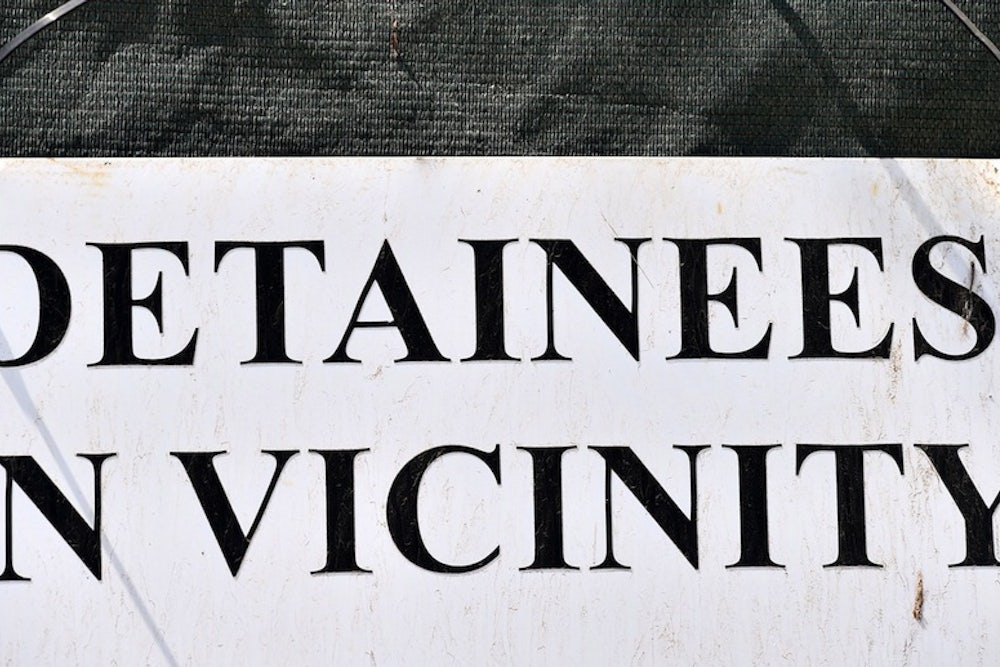GUANTÁNAMO BAY, CUBA — Today, Khalid Sheikh Mohammed’s attorney, David Nevin, tried to mail a letter that his client—the man accused of planning 9/11—had written to President Obama, offering the commander-in-chief his thoughts on the Israeli invasion of Gaza. Without providing a reason, the government authorities refused to send the letter.
“Mr. Mohammed is advising the President that there is a long history of Muslim oppression at the hands of the West in general, the United States in particular," Nevin. said. "Hundreds of thousands of people were killed in Iraq as a result of the Iraq sanctions.”
Even though the material in Mohammed’s letter was not classified information, Nevin was unsure whether or not he was legally allowed to describe the specific contents of the letter—an example of the ambiguity of the rules governing the military commissions here at the Guantánamo Bay detention center.
The high-value detainees in Camp 7, the most secure prison camp in Guantánamo, receive their news through a pre-screened, day-old DVD recording of Russia Today, which is presumably how Mohammed has been following the current Israel-Gaza conflict.
In what one of the 9/11 defense attorneys, James Connell, described as a “mute, silent expression of solidarity with the people of Gaza,” the five alleged orchestrators of the 9/11 attacks appeared in war court today, noticeably wearing clothing of Palestinian origin. Ramzi bin Al Shibh, one of the accused, covered his head with a black-and-white checkered keffiyeh, a symbol of Palestinian nationalism often worn by Yasser Arafat. Co-accused Mustafa al Hawsawi carried a Koran into the room and wore a scarf around his neck adorned with Jerusalem’s Dome of the Rock, one of the holiest sites in Islam.
“Israel is committing, in my humble opinion, a number of war crimes: attacking civilians, destroying schools, a UN refugee camp, killing non-combatants. The situation in Gaza is very serious,” said Connell in a press conference.
Officials couldn’t confirm how typical the treatment of Mohammed’s letter is. According to government prosecutor General Mark Martins, the Communications Management Unit carefully regulates outgoing mail from the prisoners in Guantánamo. “The restrictions balance very important concerns of security, fairness, and access to counsel,” said Martins.
Navy Captain Tom Gresback, the detention center spokesman, could only guarantee that the detainees in the lower-security Camp 5 and 6 can send mail. Even he does not have information about the rights of the Camp 7 detainees, but said he would look for more information.
In the federal prison system, convicted criminals at all levels can send outgoing mail—including to the commander in chief. At this point, Mohammed has not been found guilty of a crime.
Nevin noted the irony of preventing Mohammed from writing to President Obama. “The president after all, under the Military Commissions Act, is the person who is required to sign off on the execution on any death warrant that is issued as a result of the culmination of these proceedings,” said Mohammed’s attorney.
This article has been updated. It originally identified Khalid Sheikh Mohammad's attorney as David Nevins. In fact, he is David Nevin.
